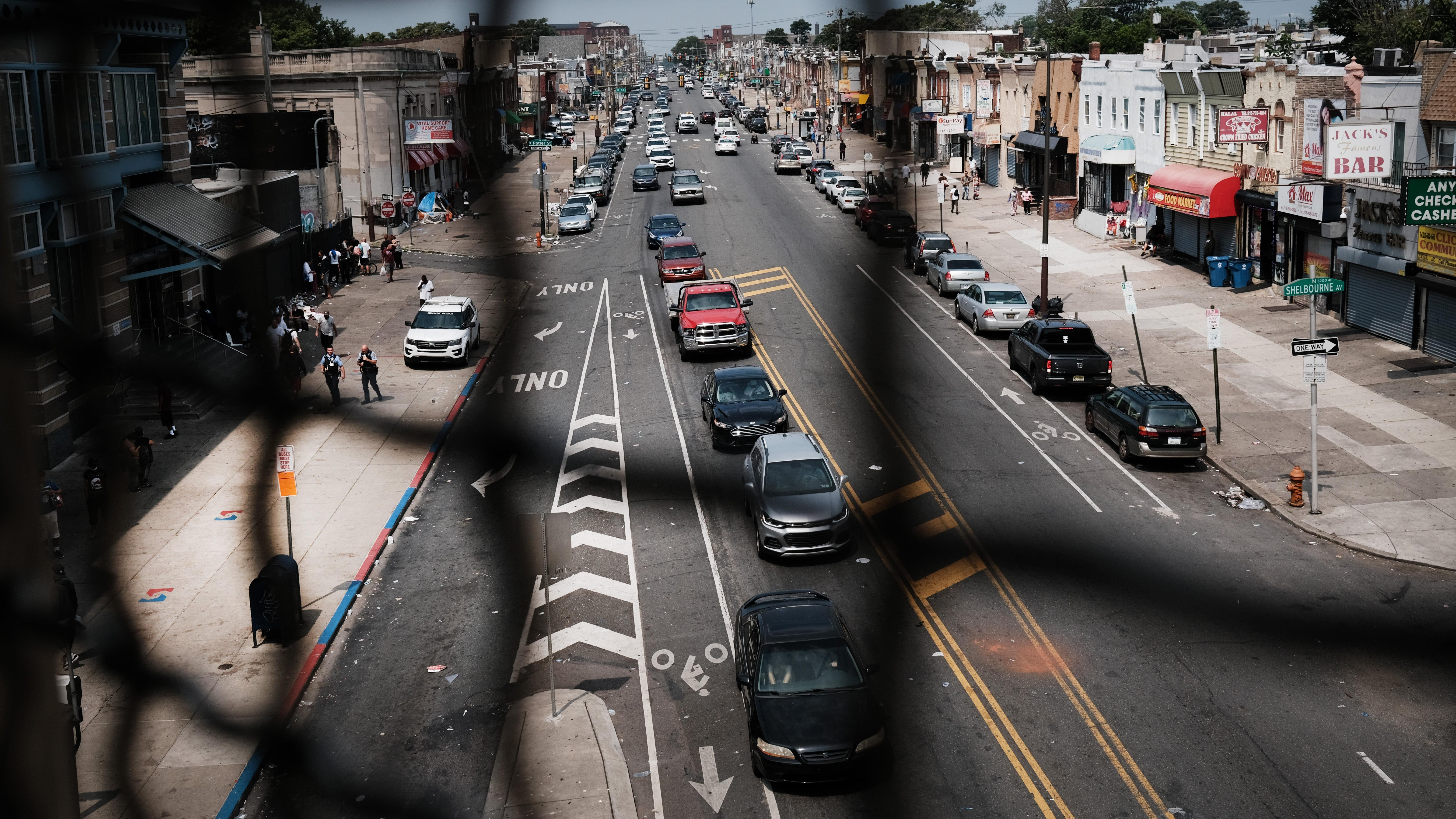Feeling Lonely? Your Car-Centric Town Might Be Why
Urban planning has long prioritized vehicles over humans.
When I was looking at buying my first house, I really wanted something in Austin, TX. I'd lived there for college, and I always cited one key factor to wanting to go back: I used to be able to walk everywhere. It only took about 20 minutes to get from my front door to downtown. But when I considered actually investing in a house, I realized that dream would pretty quickly die out, and I'd need to drive just about everywhere. Now, I live in the boons — and I think I talk to a real, live human maybe once a month.
That's something plenty of folks have felt because, as Vox outlines in a recent article titled "Too many Americans live in places built for cars — not for human connection," car-centric urban planning has basically made it impossible for humans to live in a world that we could walk through.
From the story:
Yet there's data that shows that both car-heavy places and a lack of access to transit have a detrimental effect on socializing and a sense of community, especially for those who can't drive. As local governments across the US increasingly take steps to make car-centric cities more walkable and amenable to public transit, it makes sense for us to consider what it would take to do the same for car-centric suburbs. Americans of all abilities deserve to participate in society independent of their ability to own, maintain, and drive a car. That includes being able to make friends on their own two feet.
Having friends and social connections is important for many reasons, but especially because they can stave off or reduce loneliness. While everyone feels lonely at times, long-term loneliness is dangerous and can lead to a variety of physical and mental maladies, including high blood pressure, heart disease, a weakened immune system, anxiety, depression, cognitive decline, and even death.
The story notes that Americans make most of their friends at work or school, which... kind of sucks. When these are the only people you have access to, though, the human animal will do whatever it can to find connection — even if that means spending your weekends with the same folks that inhabit your 9-to-5.
Here's a little more about the impact of that concern:
Streets clogged with speedy and noisy cars in a study done by Jennifer S. Mindell and Saffron Karlsen were found to reduce "physical activity, social contacts, children's play, and access to goods and services."
Another study Borowiecki shared found that car-centric neighborhoods hinder "children's social and motor development and put a heavy strain on the parents," who must chauffeur their children to school and other activities. American children cannot legally get driver's licenses until age 16 and are dependent on the adults who drive to navigate their environments. As a result, kids growing up in car-centric areas like suburbs have less independence and ability to play and traverse their communities, and more fundamentally, have fewer opportunities to meet and socialize with others, thus ending up with fewer friends.
It's not just children whose social connections suffer in car-centric cultures. One study of mobility among older people in Arlington, Texas, found that the lack of access to public transportation in a low-density city makes it difficult for older people to get around, making socializing and maintaining friendships and other relationships that much harder — all the more worrisome because older people in the US are more likely to live alone than others elsewhere in the world.
The full article is worth a read, pairing research with personal experience before highlighting what it would actually look like to live in a human-centric environment. You can find it here.
